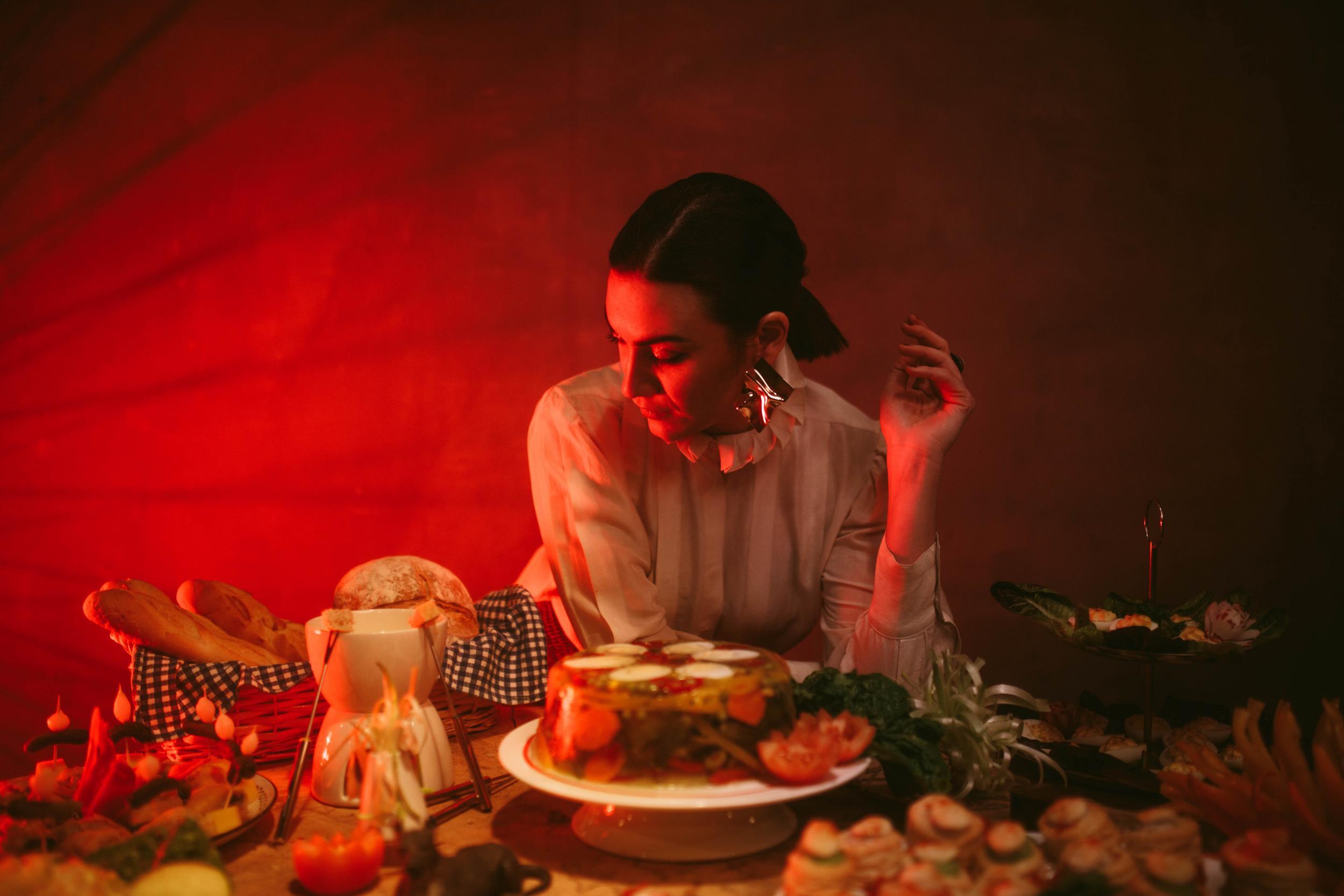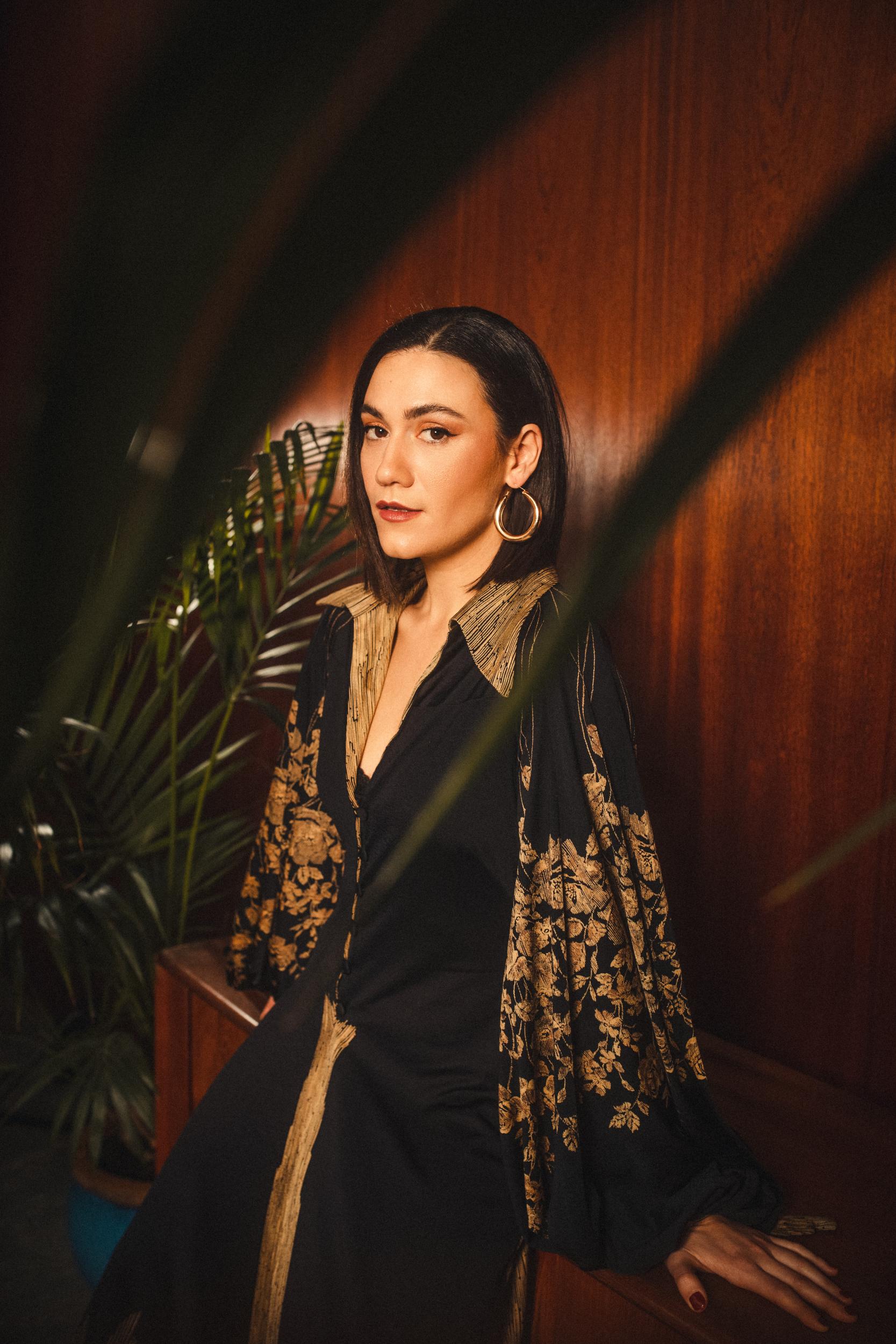Nadine Shah: ‘I didn’t know what gaslighting was’
The singer-songwriter talks to Georgie Rogers about her new album ‘Kitchen Sink’, her intense relationship with Amy Winehouse, and why a ‘happy ending’ doesn’t always have to involve marriage or children


Your support helps us to tell the story
From reproductive rights to climate change to Big Tech, The Independent is on the ground when the story is developing. Whether it's investigating the financials of Elon Musk's pro-Trump PAC or producing our latest documentary, 'The A Word', which shines a light on the American women fighting for reproductive rights, we know how important it is to parse out the facts from the messaging.
At such a critical moment in US history, we need reporters on the ground. Your donation allows us to keep sending journalists to speak to both sides of the story.
The Independent is trusted by Americans across the entire political spectrum. And unlike many other quality news outlets, we choose not to lock Americans out of our reporting and analysis with paywalls. We believe quality journalism should be available to everyone, paid for by those who can afford it.
Your support makes all the difference.When Nadine Shah first moved to London in her late teens, she used to knock around Camden with Amy Winehouse. They lived down the road from each other – both jobbing jazz singers, both forces of nature. They became sparring partners. Drinking companions. Pals. “It was a really intense relationship,” recalls the 34-year-old singer-songwriter now, speaking over Zoom from her parents’ living room. “We could outdrink most people in the pub on any night, and would just sing at people. We were probably very annoying. She was so witty and so funny. She could charm anybody.”
And then they fell out. Shah, making her first tentative steps in the music business, had borrowed Winehouse’s band and “didn’t go about it in a very cool way”. She can’t quite remember Winehouse’s final words to her, “but it was something along the lines of, ‘I’m never talking to you again, you cow’”. A couple of years passed. Then, at a jazz festival, Winehouse caught sight of Shah from the stage. By now becoming a bona fide superstar, Winehouse winked at her former friend and blew her a kiss. “That was enough for me.” A few years later, at the age of 27, Winehouse died.
Short-lived though it was, Shah credits that friendship with inspiring her own career – which now, eight years since her first EP, spans four albums of gothic pop and post-punk. “Amy’s a massive inspiration,” enthuses Shah. “Massive.” She was so bowled over when Winehouse played her some very early demos of her 2003 debut Frank that it “put a fire in my belly and made me want to write my own compositions. I remember being very jealous. A lot of things Amy was writing about are considered very vulgar for a woman to discuss, and it was so refreshing.”
Shah took that ethos and ran with it. Born in the seaside town of Whitburn in South Tyneside, to an English mother and Pakistani father, she has a flair for verisimilitude, delving into the kind of subjects – islamophobia, ageing, the refugee crisis, the suicide of an ex-boyfriend – few would attempt to put into song. Her music exists in the same noirish realms as PJ Harvey and Nick Cave, but is set apart by a sarcastic wit and thick Geordie accent, which frames those husky jazz tones. Not for nothing was her third album – the state-of-the-world address Holiday Destination – nominated for the Mercury Prize in 2018. It should have won.
Kitchen Sink, Shah’s latest record, is as packed with vibrant vignettes as ever; this time the focus is turned inwards, towards her own anxieties around being a woman in her mid-thirties. An album of hypnotic post-punk rhythms, it’s full of deeply personal lyrics, written largely on trains between London and the northeast, when she moved home to care for one of her parents. On trains, she feels in limbo and “uncontactable”, so with the English countryside whizzing by and the luxury of time, she was immersed in a process of refining and reworking. There was one mantra always in her mind: “Who are you speaking to? What do you want to say?”
The opening line of the record might be her favourite lyric she’s ever written. “Call me pretty/ Make your manoeuvre,” she sings on the bombastic opener “Club Cougar”, “One year older/ Call me a cougar.” It’s a theme she sticks with. “Shave my legs/ Freeze my eggs,” goes the ravishing, synth-laden “Trad”. “Will you still want me when I’m old?” Shah is not married, and she is the only one of her friends in the northeast to not yet have children. “Some days I never think about it and I’m totally fine with it,” she says. “Other days, I get really down about it, properly upset. I really worry about my future, being on my own and especially being at home right now and being supportive to two elderly parents, I wonder about when I’m old. I’ve never discussed with my parents how pressured I feel to have a child or get married. I wonder if they would feel sorry for me.”
She’s getting better at batting away any caustic thoughts, but says she still catches herself being too self-critical. A much-cherished friendship with Brix Smith Start, ex-guitarist of The Fall, highlights her shifting perspective.
“There is such a lack of older women, visibility of older women in music,” she says. “It’s a real shame, because it just reinforces the idea that the older we become, the more invisible we are, or that youth is currency. My mum said something years ago that has always stuck with me and it’s awful. She said that the older she gets, the more she feels invisible. And I thought, ‘That is the saddest thing.’ My mum is a very beautiful, glamorous woman. Brix Smith Start is anything but invisible. If she walks into a room, you’re looking at Brix.”

Shah is no different. She is just as charismatic, witty and forthright in person as she is in her lyrics – or in her Instagram series Payback, where she turns the table on journalists, disarming them enough to divulge juicy stories: Grace Jones snogging Miranda Sawyer; Matt Everitt’s unusable Debbie Harry interview; Laura Snapes’s detailed description of Taylor Swift’s Nashville apartment (yes, there is a koi carp pond in the living room); Michael Azerad walking into the room to interview Kurt Cobain only to find him in bed.
She, too, shares anecdotes readily. The song “Buckfast” is about gaslighting, she says. “I once dated somebody who was breaking up with me, but he said I had the opportunity to stay with him if I wrote him something ridiculous like 5,000 or 10,000 words on why we should still be together,” she says. I am aghast. “I did it. And I’ve regretted it ever since. I even drew pictures in it. It haunts me to this day that I did that. I’m so angry at myself – but actually, he was a bit of a bully.” How long was she with him after that? “I wasn’t! It wasn’t good enough.” To Shah’s relief, a friend later procured the document back from the ex. The resultant song, which was partly about her own experience and partly about that of a close friend, would come to symbolise taking the power back. “Because the music is so kinetic and energetic, it makes it more empowering,” Shah says triumphantly.
She had no idea what gaslighting was when it first happened to her. “And when you learn of a word which describes a certain abuse like that, it’s easier for you to then identify if something’s happened to you. This is why I May Destroy You is so good.” Michaela Coel’s BBC and HBO comedy drama explores the aftermath of sexual assault and the blurred lines of consent. “Just like I didn’t know what the term gaslighting was, I didn’t know that it was a criminal offence to remove your condom whilst having sex with somebody either. I do now, thanks to her.”
Shah became obsessed with the show during lockdown, a time which she admits magnified her insecurities. Before she swapped a one-bed flat in London for the South Tyneside sea-views at her family home, she found herself browsing Rightmove for properties she’d rather be quarantined in. We laugh about it and agree that social media is to blame – nothing’s worse when it comes to comparing yourself to other people than being privy to their newly bought houses, massive kitchens or lush interiors. Amusing videos of home-schooling, meanwhile, prompted pangs for a lockdown baby. Or even a puppy.
“I end up feeling sorry for myself,” she says. “But then I have to remind myself, I’ve made four albums, I’m so lucky to be working as a professional musician, something I’ve always wanted to do since I was young. I’m starting to realise more and more every day that it’s completely and entirely possible to live a full and happy life without getting married or having children. A happy ending isn’t always a marriage, a wedding or the birth of a child. Those are beautiful things. But there is so much more that can be done.”
Kitchen Sink is out now
Join our commenting forum
Join thought-provoking conversations, follow other Independent readers and see their replies
Comments